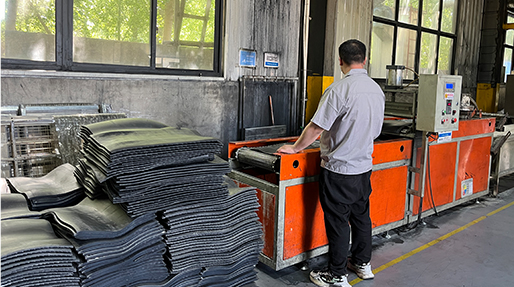Air Conditioner Condenser Hose Maintenance Tips for Efficient Cooling Performance
Dec . 05, 2024 16:46 Back to list
Air Conditioner Condenser Hose Maintenance Tips for Efficient Cooling Performance
Understanding Air Conditioner Condenser Hoses Importance and Maintenance
Air conditioning systems play a crucial role in maintaining comfortable indoor environments, especially during the sweltering summer months. A key component of an air conditioning system is the condenser, an integral part that helps transfer heat from the refrigerant to the outside air. Among the various components of the condenser, the condenser hose is often overlooked, yet it is vital for the efficient operation of the entire cooling system. This article will delve into the importance of air conditioner condenser hoses, common issues they face, and tips for maintenance.
The Role of the Condenser Hose
The condenser hose is responsible for transporting refrigerant between the compressor and the condenser unit. As the refrigerant travels through the hose, it undergoes various phases of compression and expansion, which are essential for the heat exchange process. The efficient functioning of the condenser hose ensures that the refrigerant can effectively absorb heat from the indoor air and release it outside, thereby cooling the indoor environment.
Moreover, many modern air conditioning systems use two types of hoses the high-pressure and the low-pressure hoses. Each serves a specific function in the refrigerant cycle, and any failure in these hoses can lead to a decline in the unit's overall performance. A well-functioning condenser hose is critical for energy efficiency, and its failure can result not only in discomfort but also in increased energy costs.
Common Issues with Condenser Hoses
Over time, condenser hoses can develop various issues due to wear and tear. One common problem is deterioration caused by exposure to extreme temperatures and environmental factors. The materials used in the hoses can become brittle and may eventually crack or rupture, leading to refrigerant leaks. Such leaks not only compromise the system's efficiency but can also potentially harm the environment.
Another issue to be aware of is improper installation. If the hoses are not installed correctly, they can experience stress at the connection points, leading to leaks or complete disconnection. Additionally, contamination from dirt or debris can obstruct the refrigerant flow, resulting in less efficient cooling and potential system failure.
Maintenance Tips for Condenser Hoses
air conditioner condenser hose

Regular maintenance is crucial for prolonging the lifespan of condenser hoses and ensuring the efficient operation of your air conditioning system. Here are some practical tips
1. Routine Inspections Periodically check the hoses for any signs of wear, such as cracks, bulges, or discoloration. Look for any signs of refrigerant leaks, which may appear as oily spots around the hose fittings.
2. Keep Them Clean Ensure that the hoses are free from dirt and debris. Clean the area around the condenser and the hoses to prevent clogs and contamination.
3. Check for Kinks or Bends A hose that is kinked or bent can restrict the flow of refrigerant, leading to decreased efficiency. Ensure that the hoses are routed properly and are not subjected to undue stress.
4. Professional Servicing It is advisable to have your air conditioning system serviced by a professional at least once a year. A qualified technician can inspect the entire system, including the condenser hoses, and identify any potential issues before they escalate.
5. Replace Worn Hoses If you notice any significant wear or damage, replace the hoses promptly to prevent system failure. Using high-quality replacement hoses can significantly improve the reliability and efficiency of your air conditioning system.
Conclusion
In conclusion, air conditioner condenser hoses play a pivotal role in the performance of your cooling system. By understanding their importance and being proactive with maintenance, you can ensure that your air conditioning unit operates efficiently, saving you energy costs and providing a comfortable environment throughout the year. Regular inspections and timely repairs will go a long way in extending the lifespan of your air conditioning system and keeping it in optimal working condition.
